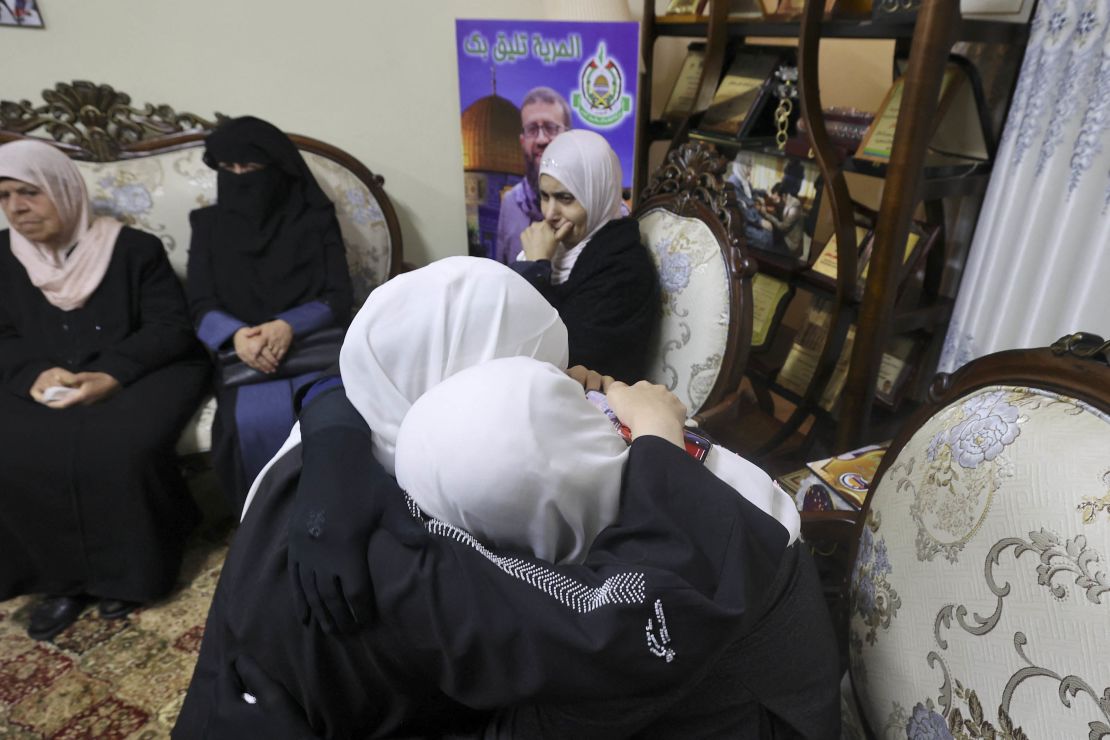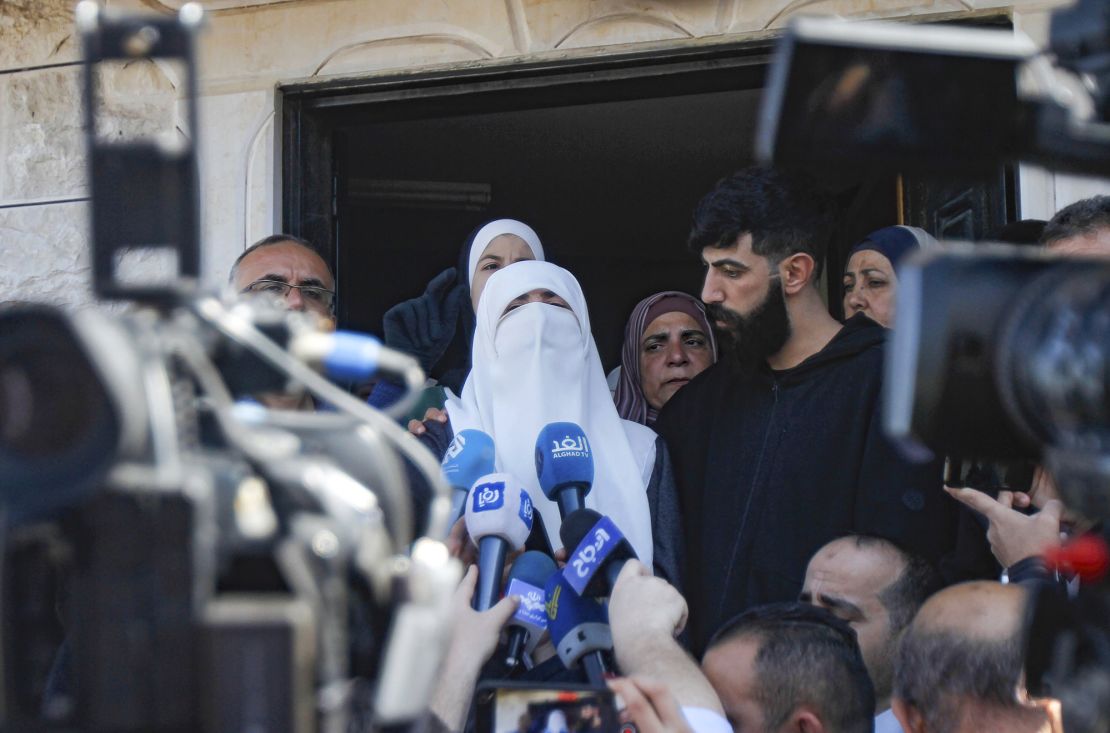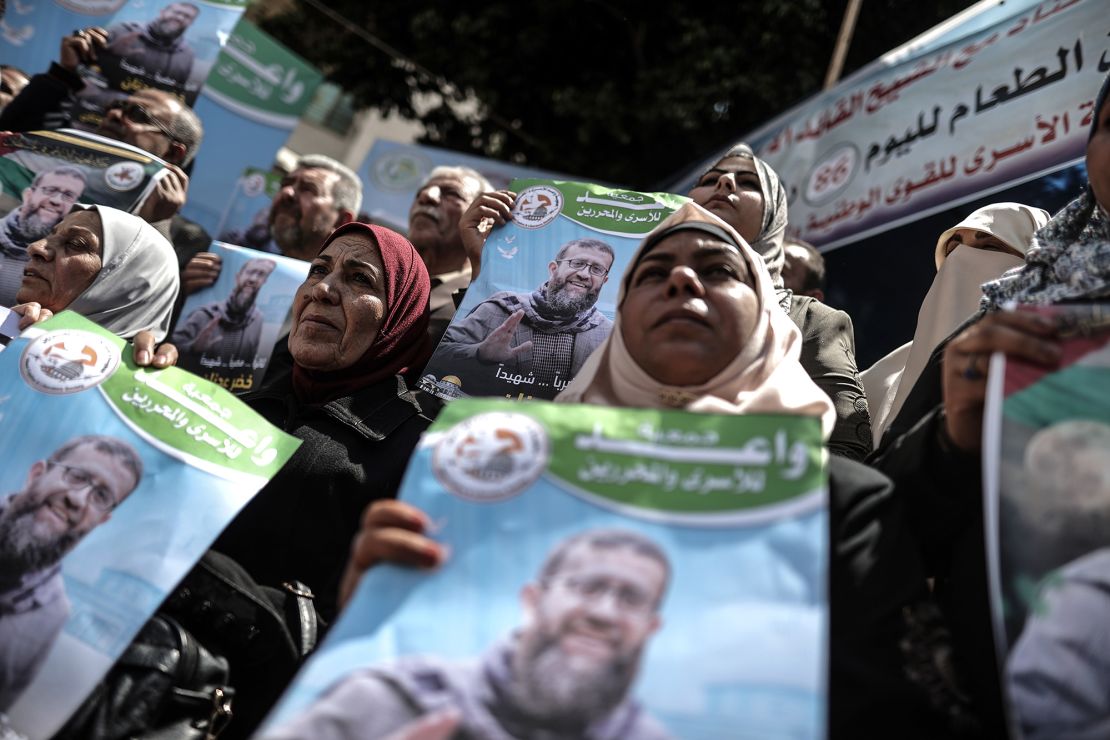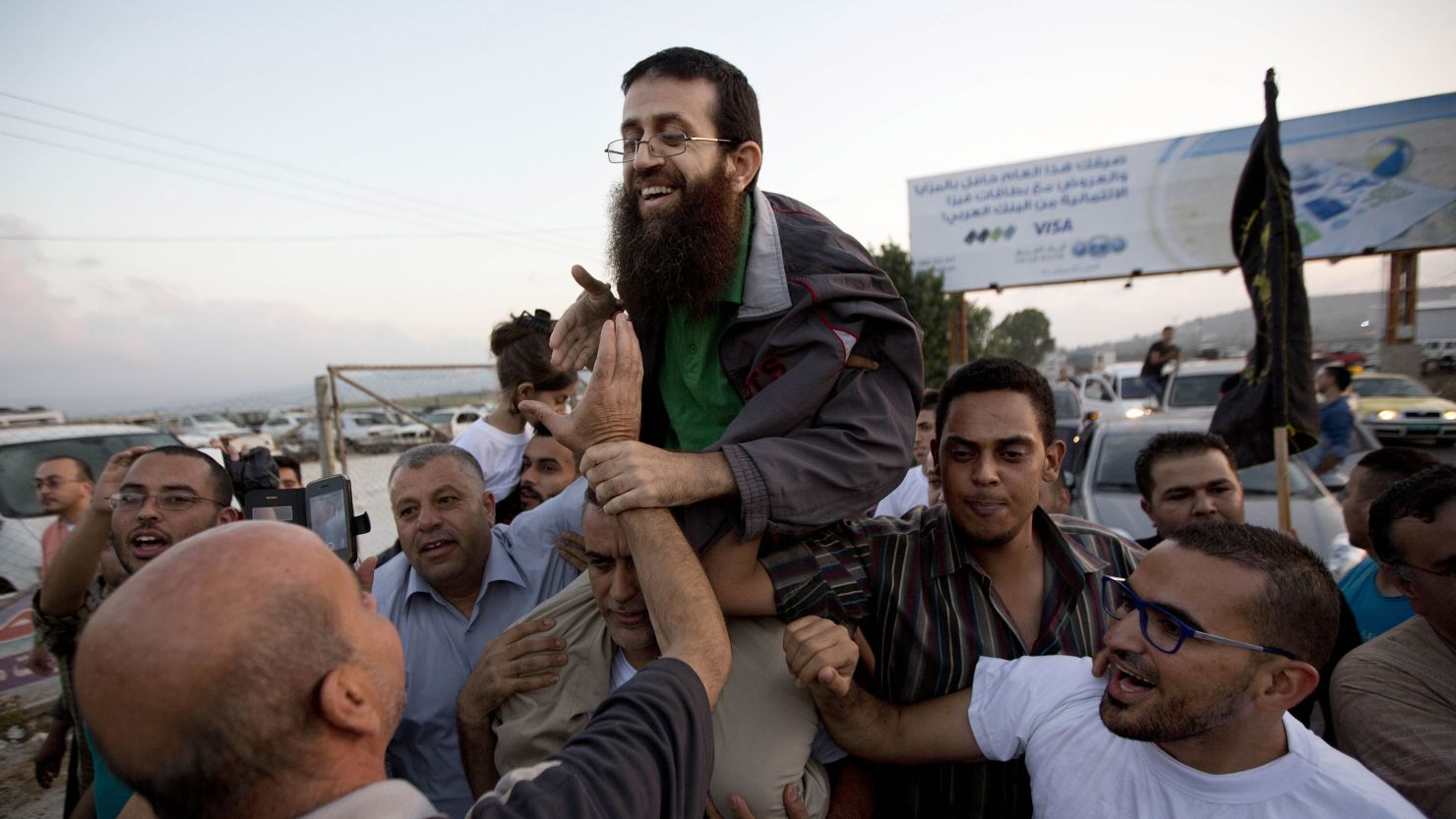Palestinian detainee Khader Adnan, an Islamic Jihad former spokesman who became a symbol of Palestinian resistance to Israeli detention policies, died Tuesday after 87 days of hunger strike, authorities said.
Adnan, 45, had been on hunger strike since his arrest on February 5, and while in detention he refused to get medical checks, the Israeli Prison Service said in a statement announcing his death.
The news sparked widespread anger in the West Bank, and rockets were fired from Gaza towards Israel. Adnan’s widow, however, called for calm in the wake of her husband’s death.
He was found dead in his cell following his almost 3-month hunger strike, the prison service added.
The Palestinian Prisoners Society also announced Adnan’s death, saying “the Israeli occupation assassinated Sheikh Khader Adnan.”
Islamic Jihad announced a posthumous promotion for him to commander, saying “Khader Adnan rose as a martyr in a crime for which the Zionist occupation bears full and direct responsibility.”
The Iranian-backed Palestinian militant group is responsible for the killings of scores of people in Israel in suicide bombings and rocket attacks.
He was detained in February on suspicion of membership in a terrorist organization, support for terrorism and incitement, Israeli authorities said. He had not been tried at the time of his death.
Following news of his death, Palestinian political parties announced a general strike in the West Bank in mourning for Adnan, with the shuttering of courts, schools, universities and shops.
Palestinian detainees in Ofer Prison, an Israeli military prison in the West Bank, began a general hunger strike to protest his death, the Palestinian Prisoners’ Society said.
Adnan was from Jenin in the occupied West Bank. Video from Jenin showed one of his sons protesting over his father’s death during a protest.
Adnan’s widow pleaded for non-violence in the wake of his death. “Not a drop of blood was spilled during the prisoner’s previous hunger strikes, and today we say with the rise of the martyr and his accomplishment of what he wished for, we do not want a drop of blood to be spilled,” Randa Musa said, adding that it was too late for arms to help him.
Addressing Palestinian militant factions directly, she said weapons had not freed him: “Whoever has the weapon should have used it before the sheikh died, but now we don’t need this weapon.”


She spoke before a stream of rockets shot from Gaza. At least 22 rockets fired from Gaza towards Israel, the Israel Defense Forces said. Four were intercepted by Israel’s Aerial Defense Array and 16 fell in open areas, the Israeli military added. It did not account for the other launches.
At least three people were injured by shrapnel in the Israeli city of Sderot after the rockets were fired, emergency services said.
The three were foreign workers on a building site, Magen David Adom said. One of the victims was in serious condition, and two others were in mild condition, MDA said. All three were taken to Barzilai hospital.
Israel Police identified at least five locations where rockets landed, the Israel Police spokesperson’s unit said. Three were in Sderot and two others were in nearby communities.
The reports came as the IDF instructed Israelis who live near Gaza to remain near designated shelters.
A source in the Gaza Strip, which is run by the Palestinian militant group Hamas, said earlier that security and military sites were being evacuated in anticipation of Israeli response.
Palestinian Authority Prime Minister Mohammad Shtayyeh accused Israel of carrying out a “deliberate assassination… by refusing his request to release him, neglecting him medically and keeping him in his cell despite the seriousness of his health condition.”
Israel has not yet returned Khader Adnan’s body to his family, his lawyer Jamil Al Khatib told CNN by phone. His family has requested that there should not be an autopsy and that the body be given to the family for burial, the lawyer said.

Adnan first gained international attention for a 66-day hunger strike that ended in February 2012, which was at the time the longest known hunger strike by a Palestinian detainee in Israeli prisons.
According to the Palestinian Prisoners’ Society, he has been arrested at least 11 times since 2004 and held five hunger strikes. In 2015, he went on hunger strike for 55 days before Israeli authorities released him.
Adnan spent a total of eight years in Israeli jails, mostly under administrative detention, a controversial Israeli military procedure that allows authorities to hold detainees indefinitely on security grounds. The process also allows for detention based on secret evidence, and there is no requirement to charge the detainees or to allow them to stand trial.
His hunger strikes from jail became a rallying cry for Palestinians, who staged multiple rallies of support in the West Bank and Gaza.
Israel has 4,900 Palestinian detainees in Israeli prisons, with 1,000 of them being held in administrative detention without charge – the highest number since 2003, according to the Palestinian Prisoners’ Society.
Adnan is at least the seventh Palestinian detainee to die on hunger strike in an Israeli prison since 1970, the Palestinian Prisoners’ Society told CNN. Abdel Qader Abu Al-Fahm was the first, followed by four in 1980 and one in 1992.
Correction: This article has been updated to clarify that Khader Adnan was promoted to commander posthumously.




